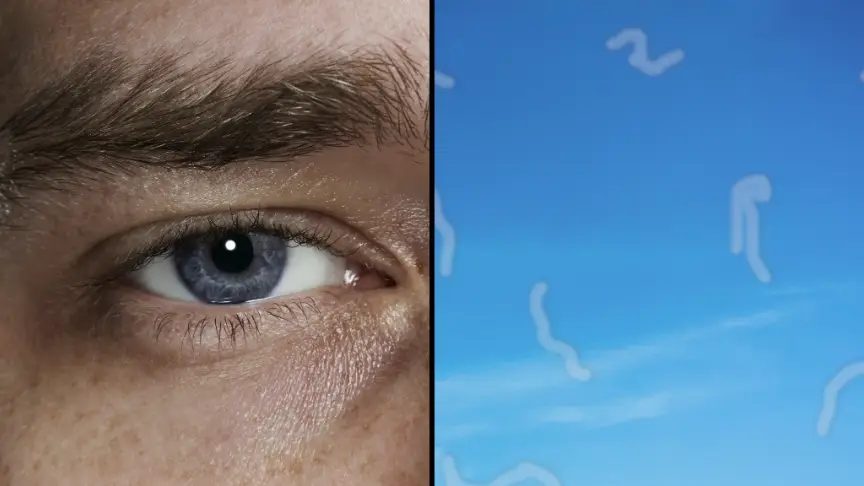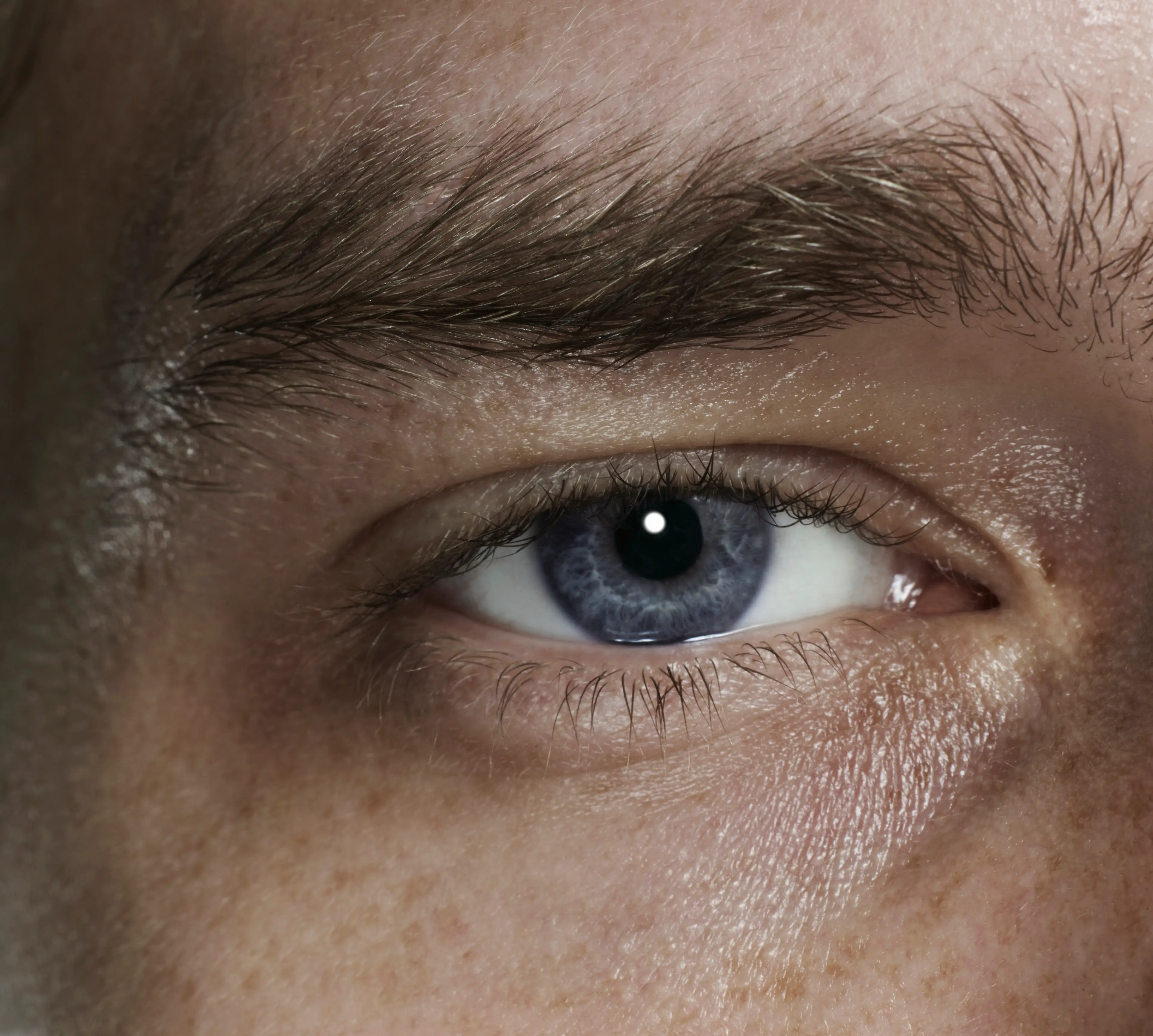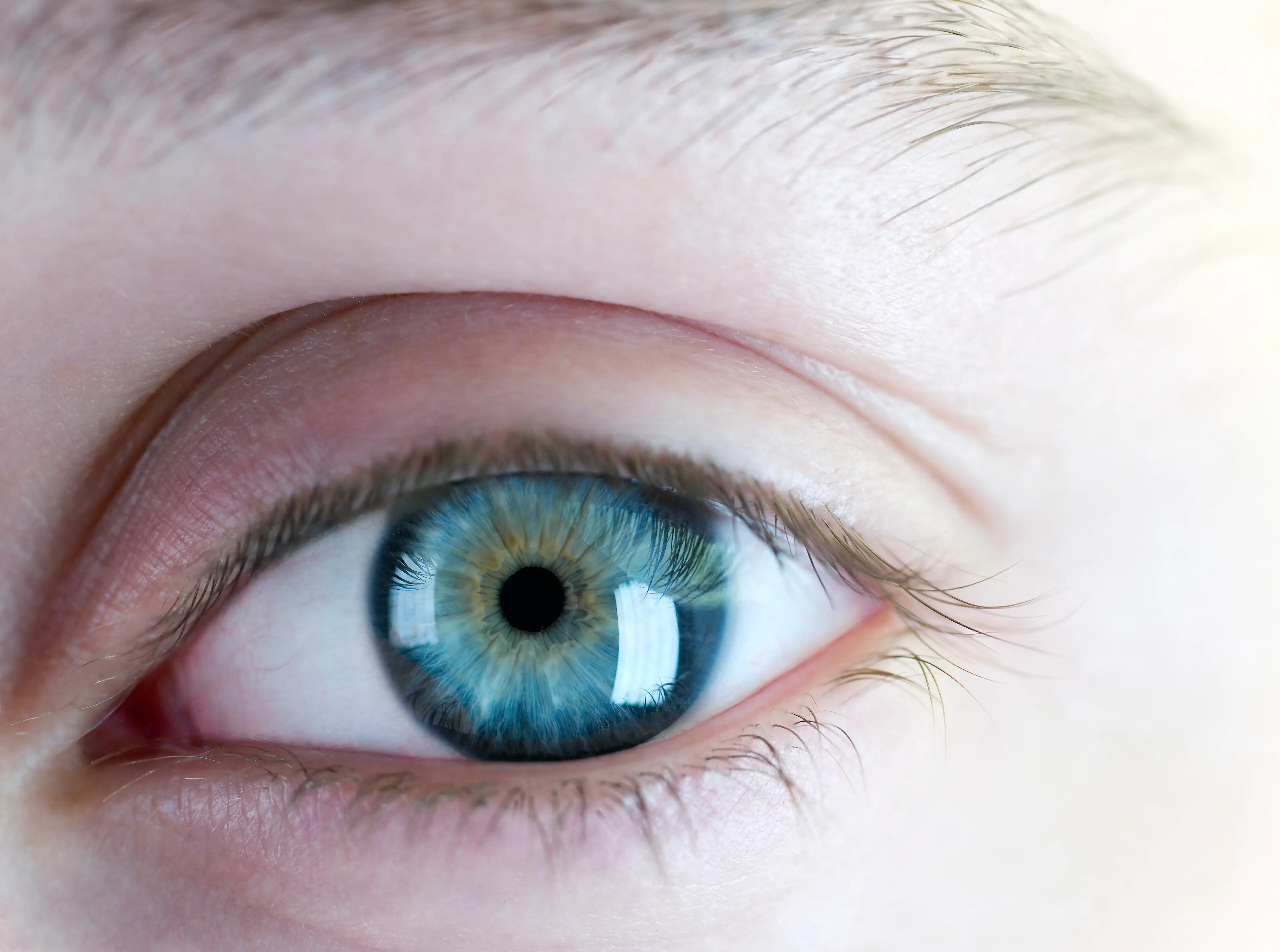
Ever turned your head and seen lines and dots in your eyes move with you? You're not alone.
Known as floaters, flashes or 'squiggly lines', they can be proper annoying. Combine it with a twitchy eye and it's just downright maddening.
Drifting across your eyes as you look around, they float like cobwebs over the top of your pupil.
Advert
First things first, don't worry too much at this stage.
They're very common and a lot of the time they're not a sign of anything serious.
But that's not the case for everyone and they can be an indication that something is significantly wrong. Let's break it all down below:
What causes floaters and flashes in your eye?
According to the National Eye Institute, floaters are fairly normal - although the reason why it happens is pretty gross.
As we get older, strands of gel-like fluid in our eyes (called the vitreous) stick together and cast shadows on the retina.
On occasion, floaters can be caused by your retina detaching, which will need urgent treatment to prevent permanent vision loss.
What are symptoms of floaters and flashes in your eye?
Floaters in your vision can look like small dark dots; squiggly lines; rings; and cobwebs.

Unsurprisingly, flashes look like sudden flashes of light.
The NHS says they are 'usually harmless and not a sign of anything serious'.
This is especially the case if you have had them for a long time; they're not getting worse; or your vision is not affected.
They sometimes stop on their own, and become less annoying once you get used to them anyway.
When should you get an urgent optician's appointment or call NHS 111?
The NHS says there are seven instances where you should seek professional advice.

It says you should get help if:
- you have floaters or flashes in your vision for the first time
- you suddenly get floaters or flashes in your vision
- the number of floaters or flashes suddenly increases
- you have a dark 'curtain' or shadow moving across your vision
- you also have blurred vision
- you also have eye pain
- floaters start after eye surgery or an eye injury
These signs could mean you have serious problems with your eyes, and it could permanently affect your vision if you don't sort it out quickly.
Specsavers says: "Seeing black dots in your vision, also known as floaters, is very common.
"Usually, they are a condition not to worry about and they tend to sink out of your vision fast enough for them not to bother you.

"However, if you notice an increase in new floaters, especially with flashing lights, it could be an indication of something more serious – in this case contact your optician straight away."
Essentially looking after yourself with eye floaters comes down to knowing your own body and making a note of when changes occur.